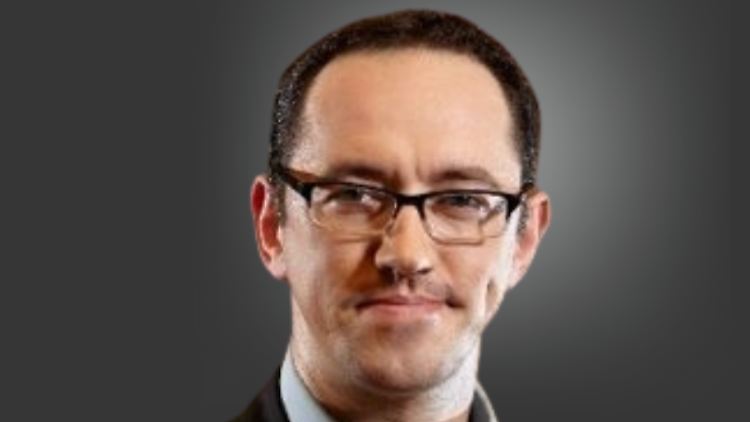Despite the political tensions caused by Moscow’s war of aggression against Ukraine, many EU member states continue to purchase gas from Russia. Szymon KardaÅ› warns of the dangers of dependence and explains how countries can break free from it. KardaÅ› is an energy expert in the Warsaw office of the European Council on Foreign Relations (ECFR).
ntv.de: Russia’s war of aggression against Ukraine is entering its third year. That didn’t stop several European Union states from importing 15 to 16 million tons of liquefied natural gas from Russia last year. This makes Russia the second largest LNG supplier to the EU after the USA. Why is that?
Szymon KardaÅ›: The first reason is that some EU member states still have long-term contracts with Russia, more specifically with the Yamal LNG consortium, which owns the largest operating LNG export terminal in the European part of Russia. Spain and France have such treaties. Some EU states import Russian LNG because there are no sanctions against Russian gas and therefore no justification for terminating the contract. Belgium also imports a lot of LNG, but some of it is exported to other markets. The second reason is that the EU states, to which Russia turned off gas pipelines after the start of the war, were faced with the challenge of finding alternatives. Due to the decline in pipeline gas deliveries, Russian LNG was sometimes perceived as something that the EU states still need in times of crisis.

Szymon KardaÅ› is an energy expert in the Warsaw office of the European Council on Foreign Relations.
(Photo: Szymon KardaÅ›/ECFR)
Why didn’t the EU impose a gas embargo on Russia after the oil?
It was clear from the start that there are countries in the EU that are not interested in sanctioning gas imports because they were and in some cases still are dependent on Russia’s supplies. After all, the share of Russian pipeline gas in EU gas imports before the invasion of Ukraine was 42 percent. First, the EU started sanctioning coal from Russia because it was a less sensitive issue. Then it turned to oil and oil products because it is easier to find alternatives than gas supplies. Russia also understood how dependent some EU states were on its gas supplies. The fact that Russia then interrupted deliveries of pipeline gas to countries like Germany should be understood as a counter-sanctions measure. But there are still countries that import Russian gas via pipelines, such as Austria, Slovakia and Hungary. On the other hand, there are states like Poland that had already prepared to stop buying Russian gas before the Russian war of aggression began.
According to estimates, Germany only imports four percent of LNG from Russia after Putin stopped pipeline deliveries. He could also turn off the gas tap to the remaining countries that he still supplies. Aren’t these states afraid of making themselves vulnerable to blackmail?
Actually the rest should EU states are afraid that Putin will turn off the gas supply to them. In 2022, Russia has provided proof that it is not a reliable supplier. This is the narrative that many Central and Eastern European countries tried to spread within the EU even before the invasion of Ukraine. But it was difficult. There were positive experiences in Western Europe. For decades, for example, there was fruitful cooperation between Russia and Germany. The risk that Hungary, for example, will now be cut off from the supply of Russian natural gas is small because the country is behaving politically as the Kremlin expects. But no country is safe from the Kremlin’s decision to cut off supplies.
Only through a gas embargo would the states be forced to terminate the contracts with Russia. But the oil embargo is apparently not having any effect. Putin can enjoy income from oil sales because the sanctions are circumvented through trickery. Would it be that easy for gas deliveries?
No, it wouldn’t be, at least as far as pipeline gas is concerned. Gazprom has no alternative market for the large export quantities that came to the EU via pipelines before the war of aggression. Most Russian gas pipelines are aimed at the European market, if Turkey is counted as Europe. If Russia’s gas exports are sanctioned, this would lead to an overall decline in export volumes. Turkey will hardly be able to absorb and transmit large additional quantities that come via the Turkstream pipeline. There is only one pipeline, the Power of Siberia, which leads to the Asian market, but exclusively to China. Gazprom would therefore not be able to circumvent an embargo because it lacks the pipelines to redirect large quantities of exports.
Could Russia easily avoid EU sanctions when importing LNG?
Regarding LNG, the situation is different, as Russia may try to redirect the ships to other markets for export. For example, the LNG intended to enter the EU could be transported or sold under a false flag. But Russia has to compete with other exporters such as the United States. That would be possible, but it would have to offer lower prices. Russia would lose money because it would earn less than it would by selling this gas directly to European customers.
Is Russia investing in the construction of LNG terminals?
Russia has great ambitions when it comes to expanding the LNG sector. It already operates two large terminals: Yamal-LNG in the European part and Sakhalin II in the Russian Far East. Sakhalin II delivers to Asia, Yamal LNG to Europe. Russia plans to put more large terminals into operation in the next few years. One project is called Arctic LNG 2, but there are problems with construction because of EU sanctions in the area of high-performance technology. The sanctions are likely to delay, if not stop, most of Russia’s LNG projects. Because the country does not have its own technology for developing such large terminals. And it is difficult for Russia to develop its own technologies that are as good as those imported from the West.
The EU no longer wants to purchase any fossil fuels from Russia by 2027. How is this supposed to work without sanctions?
Sanctions would be the best solution to the problem, but with transitional periods, like the oil embargo. A transition period is important to prepare. There should be a stress test of the EU and its member states beforehand. A crisis mechanism should be developed to be able to support the countries that would be most vulnerable to Russia’s response. The transit contract between Russia and Ukraine expires at the end of this year anyway. This is the route that Russia uses for deliveries to Slovakia, Austria, the Czech Republic and partly also to Hungary. Ukraine is not ready to extend the transit agreement. Without a transit contract there is no transit. You should use this as an additional incentive. We have to prepare for the fact that the EU states may receive significantly less pipeline gas from Russia as early as the beginning of 2025.
Will there automatically be a complete stop in the supply of pipeline gas to the EU if Ukraine does not extend the transit contract with Russia?
Russia supplies the EU with pipeline gas via two routes. One of them is the huge pipeline system that runs through Ukraine. But there is also the second route via the Turkstream pipeline, which connects Russia with Turkey. One of these lines is used to supply the Turkish market. The second is used as a transit route to supply a few EU countries such as Hungary. So there is no automatic delivery stoppage due to the termination of the contract between Russia and Ukraine, because a Turkstream line can be used for certain quantities. But supplies could be cut dramatically by the end of this year if there is no transit deal.
With Szymon KardaÅ› spoke to Lea in an explanatory manner
